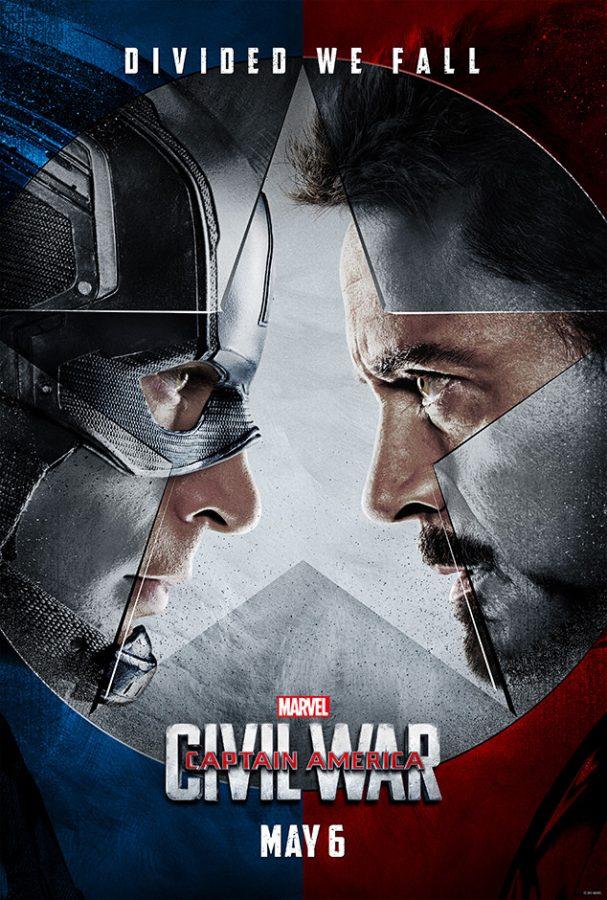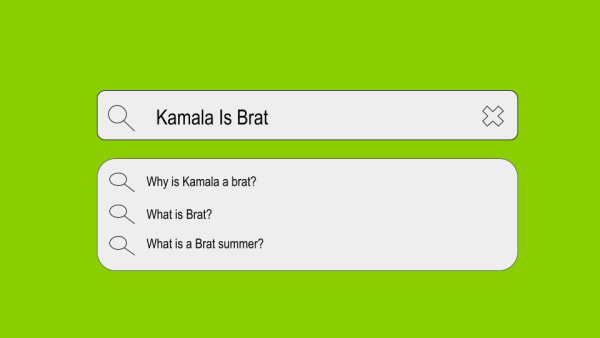Review: ‘Captain America: Civil War’
When it comes to movies based on my favorite things, I’m a tough critic — so as a self-proclaimed expert on most things Marvel, I’ve been dreading “Captain America: Civil War.” Especially after the epic disaster that was “Avengers: Age of Ultron” (also known as “A Compilation of Joss Whedon’s Career-Ending Mistakes”).
To sum it up in a sentence? Not nearly as bad as I feared it would be.
The premise of “Civil War” is complex, based on a 2006-2007 comic series of the same name where Captain America (a.k.a. Steve Rogers) and Iron Man (Tony Stark) duel it out over a proposed “Superhero Registration Act” meant to require superheroes to register with the government for accountability purposes after an accident where innocent children are injured. In the film, the act is dubbed the “Sokovia Accords” after the events in “Age of Ultron.” Tony (Robert Downey Jr.), who feels guilty about the lives lost in Sokovia and beyond, works with the United Nations to create the accords and wholeheartedly supports the regulation — superheroes will be under the authority of a U.N. council who will decide when and where they are deployed — while Steve (Chris Evans) is reluctant, especially after his childhood friend Bucky Barnes (Sebastian Stan) returns as the Winter Soldier 2.0, his memory restored and now on the run from the government. Steve chooses to take off with Bucky and becomes an international fugitive.
Several characters from previous Marvel movies reprised their roles in “Civil War” as players on “Team Cap” or “Team Iron Man,” including Black Widow and Hawkeye, Vision, War Machine, Falcon, Ant-Man and Scarlet Witch. It also oversaw the introduction of two key players to the Marvel Cinematic Universe — T’Challa (Chadwick Boseman), monarch of African country Wakanda and masked warrior Black Panther, and Spider-man (again, this time played by Tom Holland).
My list of nitpicky grievances with the film is lengthy, but I will give credit where it’s due. Directors and brothers Anthony and Joe Russo, who previously directed “Captain America: The Winter Soldier,” made this movie into a cinematic masterpiece. Despite two and a half hours of fight scenes and convoluted political and emotional alliances, I was never bored — their unique style of filming is consistently mesmerizing without being overwhelming. The dialogue between characters maintains the light-hearted humor characteristic of the first two “Avengers” films even as the “family” is fragmented into two distinct battling teams.
My problem lies mostly with the presentation of the teams themselves. Very few players seem to have true motives or opinions on this highly ethically open-ended topic — Hawkeye utters probably two lines in the whole movie about disappointing his kids and gives no reason for choosing Team Cap, while Ant-Man is summoned to battle but doesn’t even seem to know what they’re fighting about. They missed an opportunity to highlight the valid sides of both arguments — instead, the conflict focuses on fan favorite Bucky Barnes and tends to bias itself against Tony.
Despite a few plot points from the comics that I wish would have made it in, the film does a fantastic job setting up for future Marvel storylines, hinting at a romantic relationship between Scarlet Witch and Vision and leading seamlessly into solo Spider-man and Black Panther movies, to be released in 2017 and 2018, respectively. The ending also raises questions about the status of the Avengers in upcoming “Avengers: Infinity War – Part 1.”
As an avid fan of the comics and a firm supporter of Team Iron Man, am I a little disappointed? Yes. But I can appreciate a well-made superhero movie when I see one, especially when it brings such a dynamic and diverse cast to the table, the largest seen on screen in the cinematic universe so far. It may not deserve a comparison to the comic series, but they did the absolute best they could — and it definitely shows.
B

Senior Megan Shankle loves superheroes, procedural crime dramas and bookstores. She plans to study English at the University of Texas at Austin when she...





